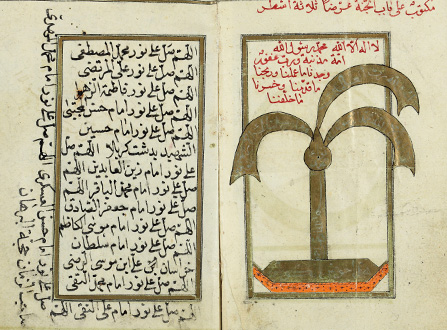Autobiographical interviews of Jews born in German speaking countries ("Yekkes") - 50/60 years after their immigration to Israel
لتكبير النص لتصغير النصBorn 10/01/1917, Kastellaun (district Koblenz). Dropped out of “Realgymnasium” in 1934. 1935-1937 hachshara in Luxembourg. 1937 emigration to Palestine. First in a kibbutz (work in agriculture and in the kibbutz-library). School leaving exams by correspondence courses. Work in the administration of the British army. In World War II in the Jewish Brigade; Hagana; till 1954 in the Israeli army. Afterwards studies of economy and sociology. Secretary in a metal processing factory. Via evening classes M.A. in Jewish history. Since his retirement working on a study on Jewish farmers in Germany (“Landjuden”) in honour of his ancestors. ; Interview (1991)/Version I and II: Forst's life in Germany until his emigration: About his place of birth (reasons of his family to move from the Moselle to Kastellaun). Forst stems from a family of traditional German “Landjuden”, i.e. farmers and cattle dealers. About the early death of his mother. While he attended school, Hans Forst used to help with the agricultural work. Analysis of the language and the religious life of the “Landjuden” (Jews in the villages spoke a special Jewish dialect). About his friends and how Nazism effected the behaviour of his classmates. First contacts with Zionism. Forst was the only Jew in his class who attended Jewish religious education and Hebrew lessons. First preparation for the emigration to Palestine with an apprenticeship in a factory for agricultural products. Afterwards hachshara in Luxembourg. (Episode from a ride home to Kastellaun where he had a disagreeable encounter with a former schoolmate). ; Forst's life in Palestine/Israel: About his beginning in a kibbutz and his knowledge of languages: He learned Hebrew very quickly (among other things because of his job as a librarian). Once he fell ill with malaria. Military service since 1940 in the British army and the Jewish Brigade. During his military service he caught up on his school leaving exams by correspondence courses offered in London. His wife came from the Saarland and worked in Israel as a pediatric nurse. About the languages spoken in their family (Hebrew with their three daughters, though his wife did not master Hebrew very well). Fates of his family members ( some were deported in 1942, his two elder brothers still live in the United States). Fates of his wife's family members (her parents also were deported, two siblings of her's live in Israel). - After his military service, Hans Forst did different jobs. He started studies of economy and sociology at a private university. 1977-1984 he attended evening courses and finished with an M. A. on Jewish history. ; Forst's research on the “Landjuden”: He plans a treatise on this topic. Details about the problems with the source material from the period 1500-1800. He explains his personal motivation to tackle this subject. - Insert about Jewish names in general and about his own name - Names on gravestones in Jewish cemeteries as possible source material. Forst wants to correct the wrong ideas of Jewish life during the period from 1400-1800, focussing on the specialization of Jewish farmers in agriculture (especially in wine-growing and meat production). Finishing remarks about Forst's present attitude towards Germany and the German language: He has started again to use the German language because of his scientific work. Contacts with German scientists and former schoolmates. ; Interview (1994): Conversation on the occasion of Hans Forst's visit to Germany (including several days at Anne Betten's university in Eichstaett): The interview consists of a loose succession of topics which for the most part were already discussed in the interviews of 1991: Forst's beginning time in the kibbutz and his time in the army. The fates of his family members and reasons for his own emigration to Palestine. His studies in old age. Additional informations about his military service. His first visit to Germany immediately after the War. Meeting with his elder brothers and fate of a stepbrother (deportation). Discussion of the problem “coming to terms with the past”. His attitude towards Germany and conflicts with former classmates. - Forst describes the activities of the Jewish Brigade - he just came from a comrade-meeting of the Brigade in Italy.- More details of his life: His service in the Hagana, activities for military forces until 1987, participation in several wars. Analysis of the present situation in Israel. His change of identity when he emigrated to Palestine; his language situation and his growing into the Hebrew culture. His philosophy of life, his values and the ideology of the kibbutz.
| العنوان |
Autobiographical interviews of Jews born in German speaking countries ("Yekkes") - 50/60 years after their immigration to Israel. |
|---|---|
| عنوان بديل |
יהודים ילידי ארצות דוברות גרמנית - 50 שנה לאחר גירושם ועלייתם לארץ. |
| مساهم |
איילון, אווה OHD (מראיין) Eylon, Eva (deceased) OHD (interviewer) Betten, Anne OHD (interviewer) בטן, אנה OHD (מראיין) פורסט, הנס סימון OHD (מרואיין) המדור לתיעוד בעל פה של מכון המחקר ליהדות זמננו ע"ש אברהם הרמן באוניברסיטה העברית בירושלים (בעלים נוכחיים) |
| تاريخ الإصدار |
1991 1994 |
| ملاحظات |
Includes short biography, questionnaire and topics of the interview. Gave three interviews: 2 to Eva Eylon on the 25.11.1991 (suspected technical difficulty with first interview) and one to Anne Betten 19.5.1994 המדור לתיעוד בעל פה של מכון המחקר ליהדות זמננו ע"ש אברהם הרמן באוניברסיטה העברית בירושלים (234)114 |
| اللغة |
الألمانية |
| الإعتمادات |
המדור לתיעוד בעל פה של מכון המחקר ליהדות זמננו ע"ש אברהם הרמן באוניברסיטה העברית בירושלים |
| رقم النظام |
990044238940205171 |
عند كل استخدام، يجب تحديد المادة في النموذج التالي:
המדור לתיעוד בעל פה של מכון המחקר ליהדות זמננו ע"ש אברהם הרמן באוניברסיטה העברית בירושלים
תנאי השימוש:
استخدام لأغراض البحث، الدراسة والتدريس
يُسمح بنسخ المادة واستخدامها لأغراض الدراسة الذاتية، التدريس والبحث فقط.
يُسمح بنسخ المادة واستخدامها أيضًا لأغراض التدريس والبحث التجارية.
يجب نَسب المادة للمؤلّف/ين وذكره/م عند كل استخدام للمادة.
يُحظر المسّ بكرامة أو اسم المؤلّف من خلال تشويه المصنّف أو تغييره.
لا حاجة للتوجّه إلى المكتبة الوطنية للحصول على إذن بالاستخدام لأغراض الدراسة الذاتية، التدريس والبحث.
الاستخدام غير المخصّص للدراسة الذاتية، التدريس والبحث مشروط بالحصول على إذن من مالك حقوق التأليف والنشر في المادة و/ أو مالك المجموعة. لا يلزم الحصول على موافقة إضافية من المكتبة الوطنية. بالإمكان التوجّه بطلب إلى المكتبة الوطنية للحصول على تفاصيل التواصل بمالك حقوق التأليف والنشر أو مالك المجموعة.
معلومات إضافية:
هذه المادة تسري عليها حقوق التأليف والنشر و/ أو شروط اتفاقية.
تم تحديد شروط الاستخدام في اتفاقية موقّعة من قبل المكتبة الوطنية.
إذا كنت تعتقد/ين أنّه قد وقع خطأ في المعطيات الواردة أعلاهُ، أو أنّك تعتقد/ين أنّ هناك انتهاكًا لحقوق التأليف والنشر بشأن هذه المادة، فيرجى التوجُّه إلينا من خلال الاستمارة التالية
MARC RECORDS
أتعرفون المزيد عن هذا العنصر؟ وجدتم خطأ ما؟

 سجل الدخول باستخدام غوغل
سجل الدخول باستخدام غوغل
 تسجيل الدخول باستخدام فاسيبوك
تسجيل الدخول باستخدام فاسيبوك




